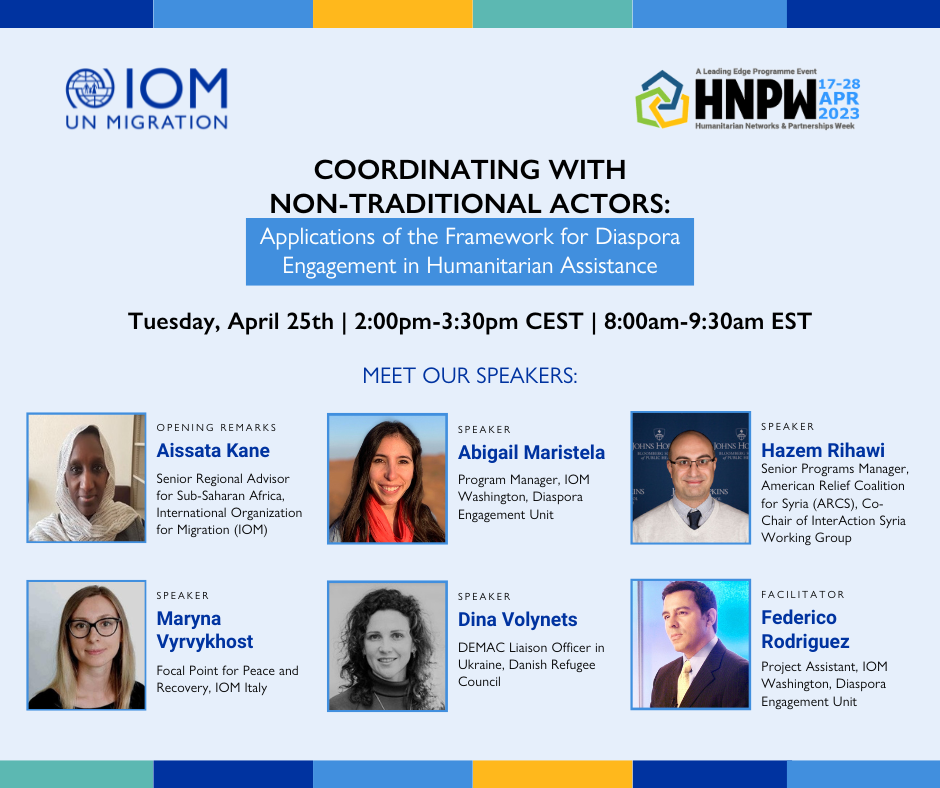
While diaspora actors have consistently contributed to humanitarian response efforts in their respective Countries of Origin (CoOs) in various ways (e.g. contextual knowledge, local connections, and quick mobilization, monetary and volunteers to name a few), much of this engagement has been traditionally ad hoc. In the last few years, international humanitarian actors and diaspora organizations active in humanitarian assistance have spearheaded a process to develop and apply coordination mechanisms to streamline humanitarian response inclusive of non-traditional actors such as diasporas. This effort has led to the development of numerous tools to enhance diaspora humanitarian contributions and a Framework for Diaspora Engagement in Humanitarian Assistance, created through multi-stakeholder consultative processes, research, and piloting in Haiti and the Philippines, with some components explored in Ukraine.
This interactive session will highlight the application of the Framework and its impact to date – from conceptualization to real time operationalization – across different crisis contexts (disasters, conflict). Attendees will hear from the International Organization for Migration (IOM), the Diaspora Emergency Action & Coordination (DEMAC) global initiative, and partner diaspora organizations about the importance of diaspora’s role in Humanitarian Assistance, sharing lessons learned, tools developed, and case studies from their projects seeking to formalize both diasporas’ internal processes (e.g. capacity building/mobilization techniques) and coordination with humanitarian actors. Participants will also take part in an exercise to apply and adapt the coordination components of the Framework to various scenarios in selected countries.
It is expected that those in attendance will come away from the session with a deeper understanding of opportunities and pathways for multi-stakeholders' coordination and broader network of resources and connections to create larger and more sustainable impact in communities affected by disasters. In addition, the input and feedback from the attendees’ participation in the interactive exercise will help refine the Framework to extend its application to other unique contexts and along the humanitarian-development nexus.
The overall scope of this session will be to apply mechanisms for strengthening the engagement of diaspora in humanitarian assistance by:
1. Presenting tools for diaspora and institutional humanitarian actors and the Framework for Diaspora Engagement in Humanitarian Assistance and explaining who can benefit, when and where it is applicable, and how it provides for more collaborative and effective humanitarian assistance, with mention to how improving diaspora internal coordination can facilitate stronger external relationships.
2. Conducting an interactive exercise where the audience explores how to promote closer coordination with non-institutional humanitarian actors, like diasporas, in different crisis-contexts, through application of the Framework and connected tools within their own operations.
3. Discussing lessons learned from the activity and exploring existing or needed case studies of Framework application, novel mechanisms/platforms for coordination, and/or tools to facilitate coordination among diaspora organizations and between diaspora and institutional humanitarian actors.


